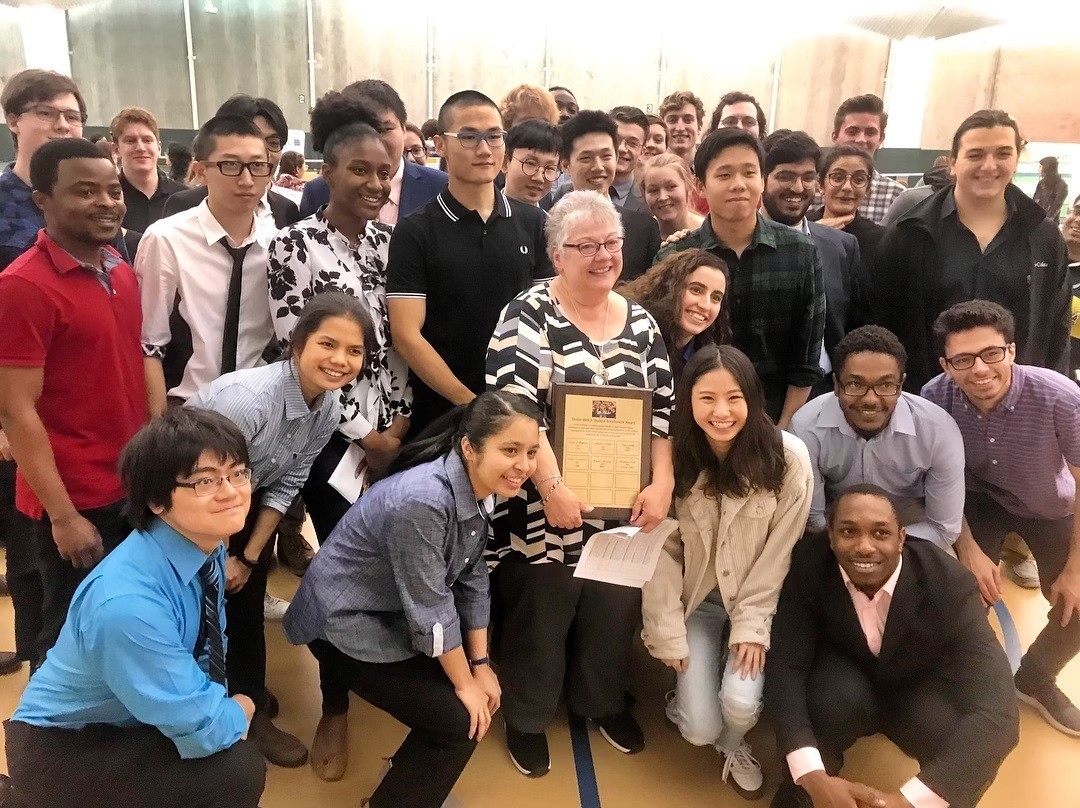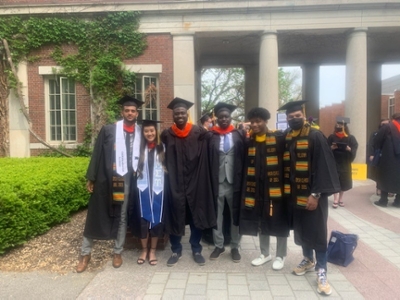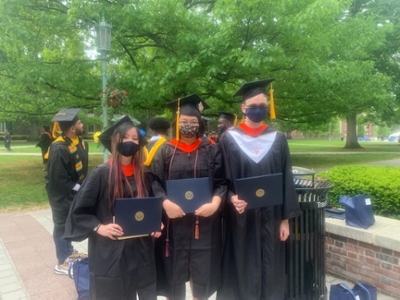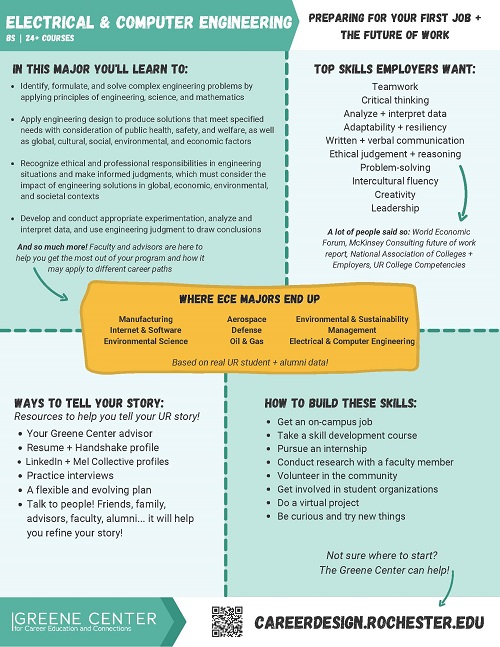Overview

Undergraduate students in the Department of Electrical and Computer Engineering (ECE) will graduate with a bachelor of science (BS) in electrical and computer engineering. Areas of focus in the BS in ECE include signals, communications, and image processing, integrated circuits, computer engineering, waves and fields, semiconductor devices, and robotics.
Training in ECE prepares students for a wide range of careers from traditional engineering, research, and development to more non-traditional careers in law, finance, and other areas.


Undergraduate Program Mission Statement
Our mission is to empower our students to be leaders, pursue their academic and professional passions, and model partnerships with educational, civic, cultural, health, and business communities. We will teach our graduates how to create innovative connections with various sectors. We will also teach them to value ethics, and diverse perspectives. Our graduates will serve their communities by developing programs which will improve the world around them. We will strengthen our faculty so that they are dedicated to teaching, mentoring, researching, thinking creatively, and recognizing the role of engineering in modern society.

Program Objectives
The educational objective of the undergraduate program in electrical and computer engineering are that:
- Our graduates have the intellectual breadth and critical reasoning skills to enable them to successfully pursue diverse career paths, both within the engineering profession and in other areas, such as law, medicine, and business.
- Our graduates possess the skills to work productively in collaborative environments.
- Our graduates can communicate effectively both within the technical community and with the public at large.
- Our graduates appreciate the social impacts of engineering and the need to maintain the highest ethical standards in the practice of their chosen profession.
- Our graduates are creative and passionate about research.
- Our graduates have an enthusiasm for lifelong inquiry.
Student Outcomes
Outcome 1: An ability to identify, formulate, and solve complex engineering problems by applying principles of engineering, science, and mathematics
Outcome 2: An ability to apply engineering design to produce solutions that meet specified needs with consideration of public health, safety, and welfare, as well as global, cultural, social, environmental, and economic factors
Outcome 3: an ability to communicate effectively with a range of audiences
Outcome 4: an ability to recognize ethical and professional responsibilities in engineering situations and make informed judgments, which must consider the impact of engineering solutions in global, economic, environmental, and societal contexts
Outcome 5: an ability to function effectively on a team whose members together provide leadership, create a collaborative and inclusive environment, establish goals, plan tasks, and meet objectives
Outcome 6: An ability to develop and conduct appropriate experimentation, analyze and interpret data, and use engineering judgment to draw conclusions
Outcome 7: an ability to acquire and apply new knowledge as needed, using appropriate learning strategies
Career Outcomes compiled by the Gwen M. Greene Center
If you have any questions regarding the Undergraduate program please contact Barbara Dick at barbara.dick@rochester.edu.
The University of Rochester’s Electrical and Computer Engineering program is accredited by the Engineering Accreditation Commission of ABET, under the commission’s General Criteria.
